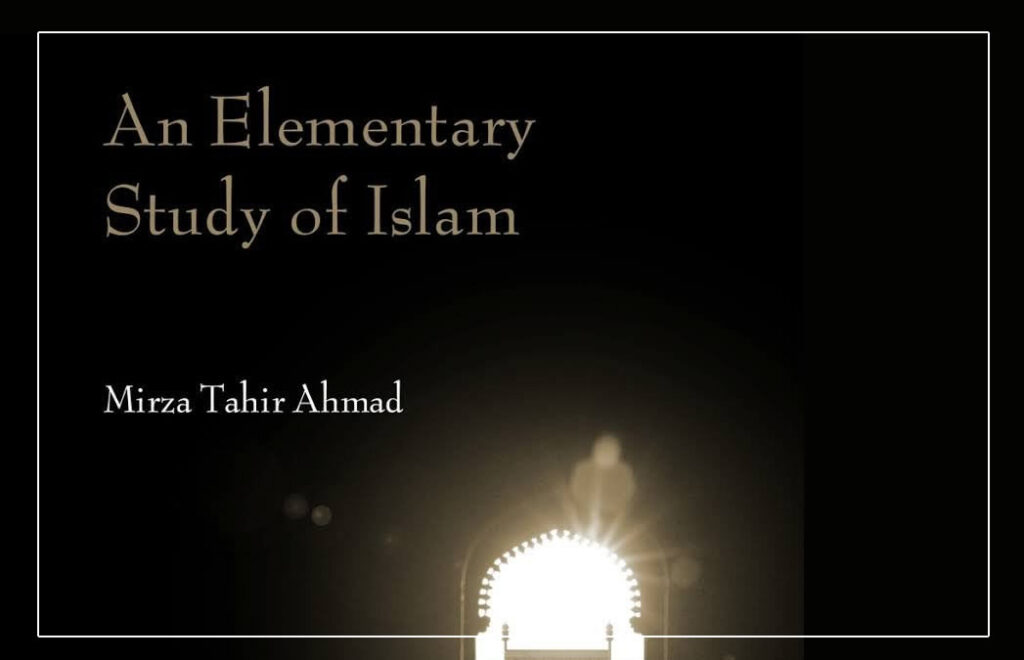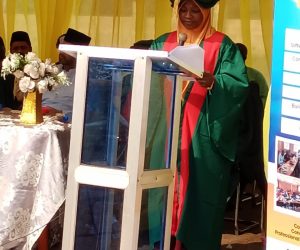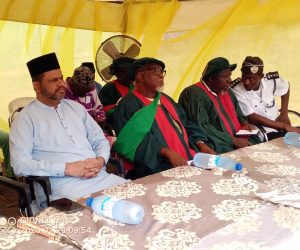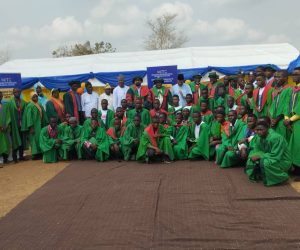
- AUTHOR: Mirza Tahir Ahmad
- Book Title: An Elementary Study of Islam
- First Published: First Published in 1985
THE REVIEW
As a budding writer, and one who is still learning the ropes, I feel honoured to write a review of the work of Mirza Tahir Ahmad, the fourth Khalifa of the Ahmadiyya Muslim Jama’at, titled “An elementary study of Islam”. Born on 28 of December 1928 in Qadian, India. As a visionary leader, he started many charitable organizations such as Humanity First and the popular television station Muslim Television Ahmadiyya International. He has written many books and given various lectures.
According to the foreword to this book, this book is a documented and amended report of the speech given by Khalifatul Masih IV Mirza Tahir Ahmad on March 12, 1990, at the invitation of the Department of Islamic Studies, Seville University, Spain, titled “A Discourse on its Elementary and its Fundamental Teachings”. The aim of the book is to serve as a source of enlightenment and guidance to help understand the basic teachings of Islam. Apart from talking on the pillars of Islam to better understand the essence of Islam, the book also treats other subjects while answering the question. It treated the questions of having similar teachings with other religions, the concept of the jihad, and reconciling the concept of predestination with free will.
Beginning with the first pillar of Islam, which is the existence of one God, the author explains that even with different sects from the Sunni to the Shiites, Muslims generally believe in the Oneness of Allah, whichever sect they belong to. Showing this, he explains that God does not have a father, mother, and wife, hence he begets no son or daughter. He explains that there is a complete concurrence between the word of God and the Act of God. He places the belief in One God as the pedestal for other forms of belief.
Talking on the angels, he explains that there are different concepts depending on the various religions, although all belief in their existence. In the bible, he relates an incidence of Jesus’ baptism, where the holy spirit descended on him like a dove. In Islam, angels are known as celestial beings who worship Allah and do the duties for which they were assigned. He explains the misrepresentation of angels in human form in most religious books but affirms that angels can take on any form, and sometimes of man when discharging messages. He cites an instance of a man who came to the mosque to ask questions from the prophet so that people would learn of that particular knowledge. When he left, the Prophet (SAW) said that the man was angel Jubril who had come to teach them their religion. He also gave an example of the battles of Badr and Uhud.
Moving to the third articles of faith, the author states that although the Muslims have the Quran as their religious book, they are supposed to believe in the revealed books of others like the Taurah, and the Injil.
While other religions do not affirm the prophethood of Muhammad (saw), it is a necessity for Muslims to believe in the revealed books. The author explains that prophets were sent to not just the Arabs, but to other nations and communities as well. Hence, the authenticity of their prophethood cannot be sidelined. He shows that the Quran states that prophets were sent at some point to different people and nations, hence the Quran makes it incumbent on every Muslim to believe in all prophets. Islam acknowledges the source of other prophets. He explains that the foundation of sending prophets to other regions has prepared the ground for a universal prophet, provision of which is not present in other religions.
Prayer is a very important factor in all kinds of religion. The modes of prayer differ according to religion though. The author states that worship is prescribed for the sake of the believer as the praise of Allah by adherents does not remove a dime from His Majesty. The author explains with a quote from the Quran that prayers prevent the worshipper from indulging in anything that is not decent. The institution of prayer in Islam as explained by the author talks on the five daily prayers; the dawn, midday, afternoon, sunset, and night prayer. He explains that prayer can be said in a congregation and also individually.
Spending in the cause of Allah is mandatory for Muslims as there is an institutionalized and non-institutionalised mode of spending for Muslims. The author states clearly that the Holy Quran is clear on which spending Allah will accept or reject.
On the topic of Hajj, the author explains that it is a re-enactment of what happened in the building of the holy Kaaba, and Hagar’s search for water in the run between Safar and Marwa.
Here, the author talks of fasting as a developed institution in Islam. He states clearly that there are two types of fasting; obligatory and optional. Understanding that Muslims follow a lunar calendar, it then means that each month changes according to the movement of the moon. Fasting in Islam begins with the appearance of dawn and ends with the sunset. He explains though that fasting is not just to refrain from food, but also from vain talk, quarrels, fights, and from any occupation that is not of a true believer.
Apart from the pillars of Islam, the author discusses the Holy War and the difference between predestiny and free will. The issue of the Holy War relates to the instrument of propagation of the religion. Seeing as the religion of Islam is tagged as a religion of using violence as a means to spread its message, the author clearly explains that the Quran acknowledged other prophets and absolves them of the use of coercion in relation to the spread of their message. It, therefore, cannot be said that it is the said Quran that cries for war and bloodshed. The author explains here that the Holy War called the Jihad is a holy campaign, and with the help of the Quran sparks a spiritual revolution in the world. He emphasizes though that there can be defensive war in the case of an attack by other people.
The concept of life after death is one that has troubled followers of all religion alike. There are some though who deny that there is any life after death.
In my opinion, the significance of this work in the understanding of the basics of Islam would not only help adherents of Islam in understanding the source and origin of their religion, but it would also help scholars, philosophers, people of knowledge, and people of other religion to know more about the religion of Islam. In a time where no one has the ease and patience to listen to a long lecture regarding the history of Islam and the necessity to follow such a cause, this book serves as a summary that explains in the simplest of form the religion of Islam.









